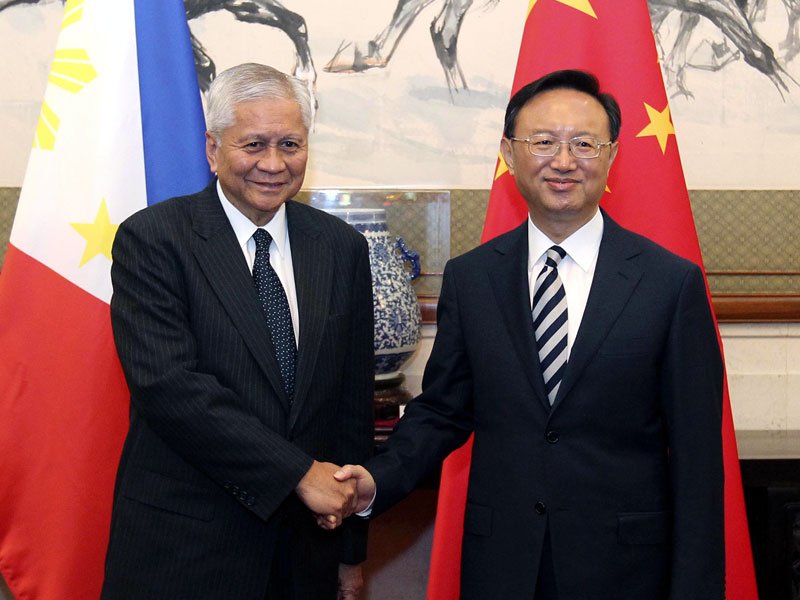
Speaking to The Straits Times on condition of anonymity, a legal expert said that Manila's submission might even compel China — which has largely been leery of settling territorial disputes in international fora — to change its mind.
Beijing would be wise to seek expert counsel before it decides whether to participate or even challenge the tribunal's jurisdiction, he said. “Beijing's initial reaction is likely that it would not participate. But if they seek expert advice, they will find it is a more complex decision than they first thought,” the expert said.
Even if China doesn't participate, a decision by the tribunal in Manila's favor would put it on higher legal and moral ground, says Professor Carl Thayer at the University of New South Wales.
Dr. Ian Storey, a senior fellow at the Institute of Southeast Asian Studies, said that China is facing a lose-lose situation.
“If it ignores the submission, then it will leave itself open to criticism that it does not adhere to international legal norms. If it decides to argue its case before the tribunal, it will have a very difficult task of justifying the legality of the nine-dash line and its claims to 'historic rights' within the limits of that line — and it might lose,” he said.
An ASEAN diplomat who requested not to be named agreed.
“If they don't fight the tribunal's jurisdiction, it might embolden other claimants in the South China Sea dispute. If they do fight and win, they could lose in the court of international opinion,” the diplomat said.
Analysts also noted that the Philippines has prepared its case well by recruiting top American lawyer Paul Reichler. He is a giantslayer in the realm of public international law, and became famous in 1984 when he won Nicaragua's case against the U.S. over its paramilitary activities in Central America.
In 2008, he also joined a legal team acting on behalf of Georgia, after Russia had invaded the country that year. He managed to secure a historic ruling from the International Court of Justice, which ordered both Russia and Georgia to halt ethnic cleansing in Russian-occupied Abkhazia and South Ossetia while Georgia's case against Russia was being heard.
As the legal expert put it: “He is a wise choice. He has done David versus Goliath before.”
China has 30 days to decide whether it would nominate an arbitrator to the tribunal. The Philippines has already nominated Judge Rudiger Wolfrum, a former president of the International Tribunal for the Law of the Sea, as a member of the tribunal.
Going forward, Manila's submission last Tuesday has significant knock-on effects on ASEAN.
ASEAN has been working with China on a legally binding Code of Conduct for the South China Sea. But Manila's latest move might affect ASEAN's centrality in the dispute. This will become even more pertinent as and when Vietnam — which is challenging China over the Paracels chain — decides to go the same arbitration route as Manila. It does look like the Philippines has scored a minor coup in its dispute with China.
Manila took many by surprise when it tabled its “well-written” submission last week, the ASEAN diplomat said. “To be honest, overall expectations of the Philippine diplomatic service are low. But what they did do is to listen to good legal advice. The submission was written by someone who really knew his job. They have stunned us by being so together on this case.”- The China Post (January 30, 2013)

No comments:
Post a Comment